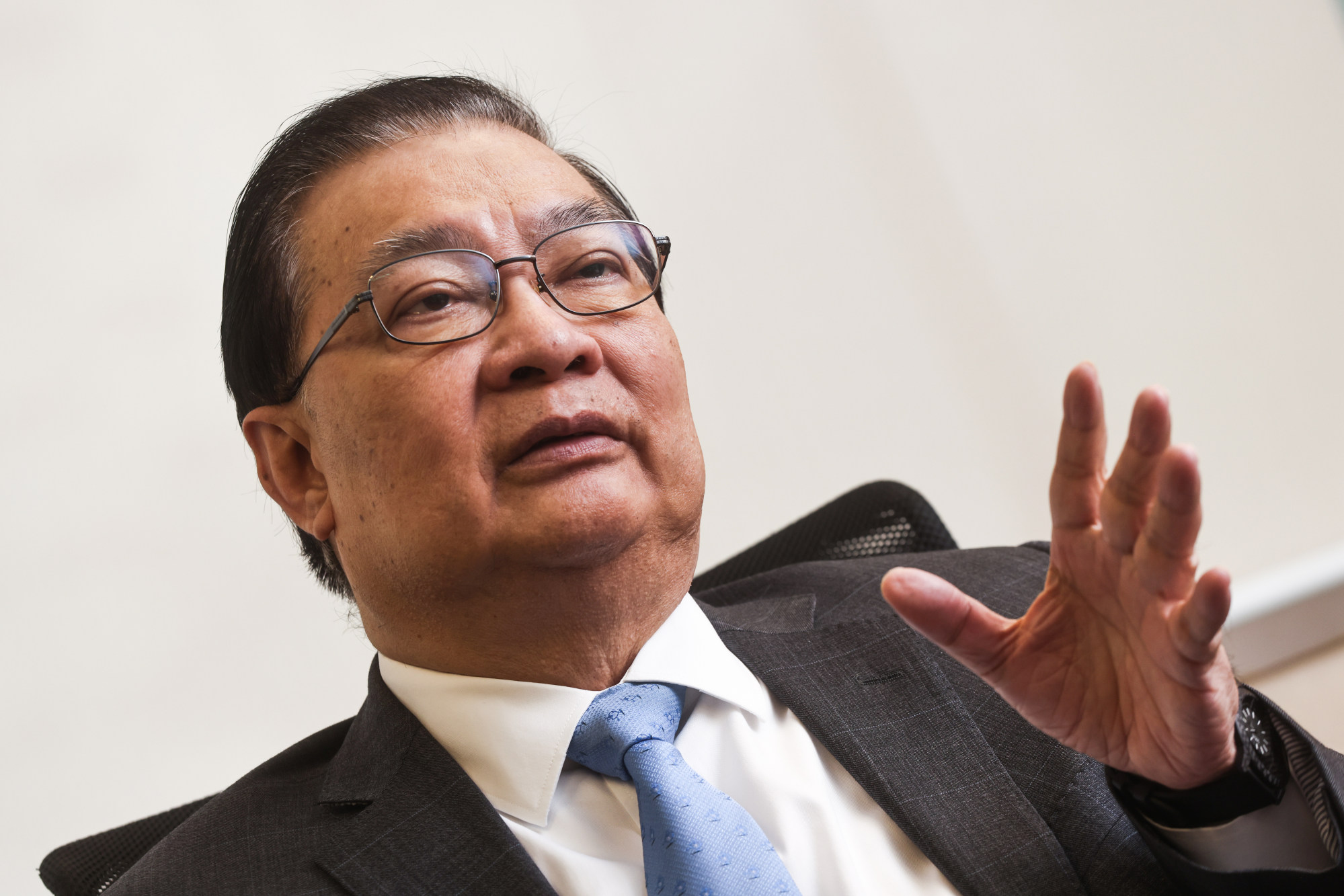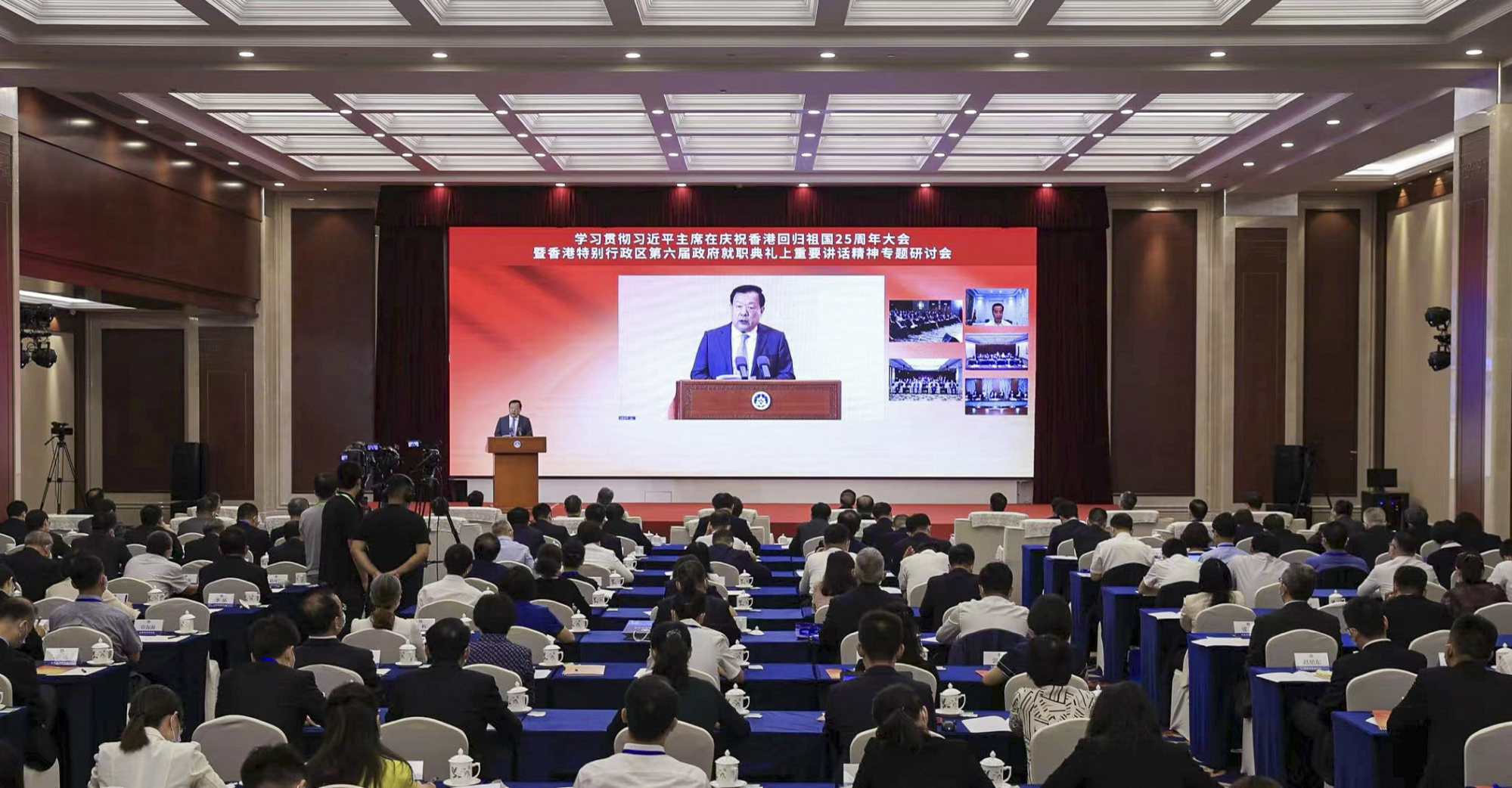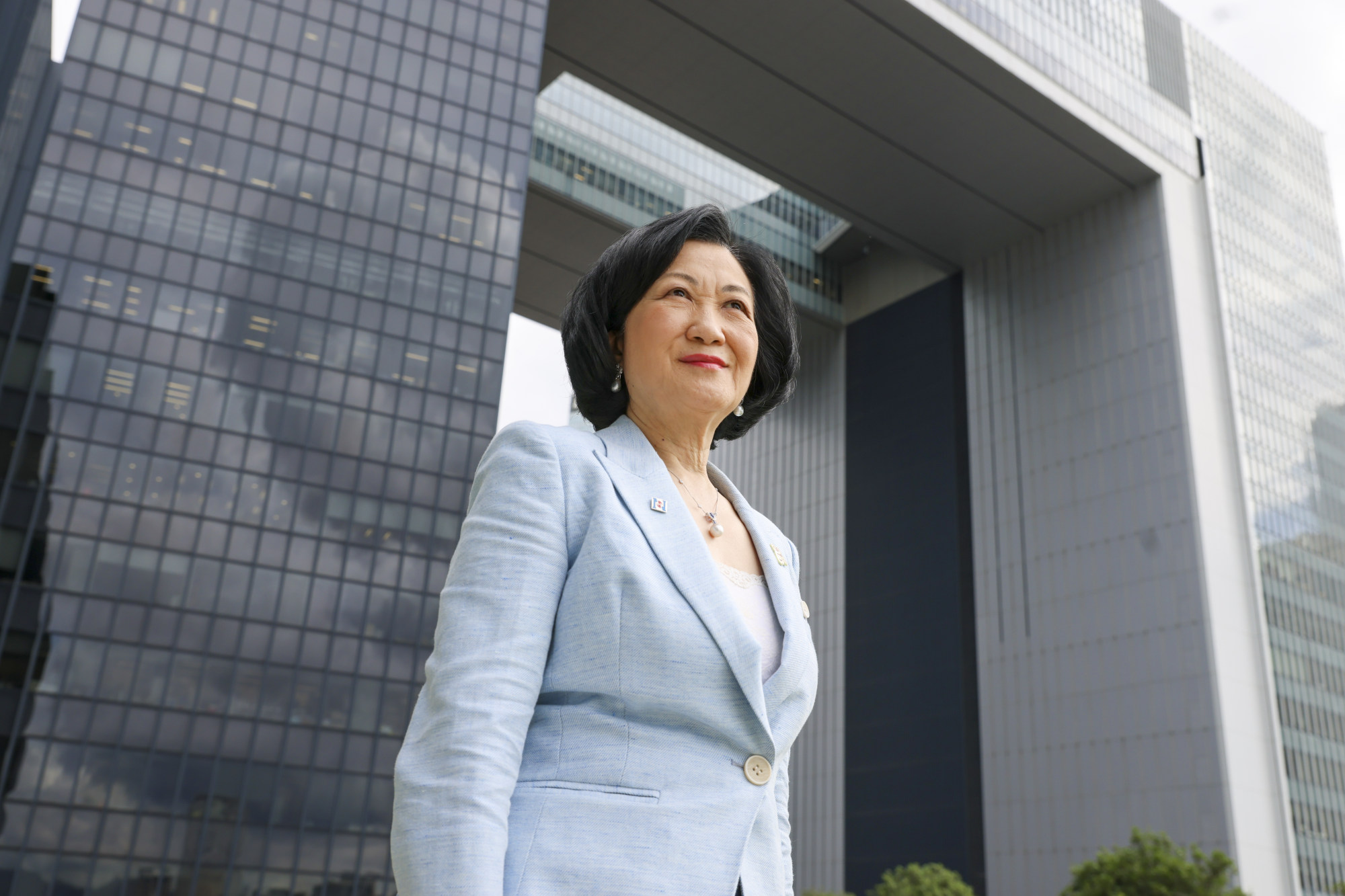
‘Anti-China clampdown’ remarks by top state official on Hong Kong affairs not targeting difference in views, Beijing heavyweight says
- Tam Yiu-chung, city’s sole delegate to country’s top legislative body, says HKMAO chief Xia Baolong was only telling people to guard against extremists
- He warns however that some within opposition camp may have to make ‘adjustments’, but does not elaborate on ‘warm’ reminder
Tam Yiu-chung, Hong Kong’s sole delegate to the country’s top legislative body, on Tuesday said the “anti-China, destabilising forces” mentioned by Xia Baolong, director of the State Council’s Hong Kong and Macau Affairs Office, did not mean everyone from the opposition camp.
“It was not referring to ordinary people who hold different views. That is not a problem. We also need to unite them,” Tam told a radio programme on Tuesday.

“‘Anti-China, destabilising forces’ are more serious terms. But, of course, some people from the opposition in Hong Kong may need to consider making adjustments according to the new situation … It may take some time for them to adjust based on their own history and background,” he said.
But Tam stopped short of defining what he meant by “adjustments”, adding only that his remarks were a “warm” reminder from an “onlooker” such as himself.

In a seminar on Monday to further elaborate on Chinese President Xi Jinping’s July 1 speech, Xia said in his keynote address that the city must resolutely clamp down on all anti-China forces that destabilised Hong Kong and Macau, as well as to “leave no crack in the process”.
Xia also made clear that anyone who dared challenge the bottom line of “one country, two systems” or oppose China and disrupt Hong Kong and Macau would be severely punished.
Hong Kong sectors rush to hold ‘mainland-style’ seminars to study Xi Jinping’s speech
Tam said that Xia was calling on people to take precautions as he believed that some extremists were beyond reconciliation and might attack at any time.
He said Xia had sounded a reminder on what was unacceptable, adding it was clear that one country, two systems, as well as “safeguarding national sovereignty, security and development interests”, were prime principles.
Asked if Xia’s comments could be seen to be hinting at work related to Article 23 of the Basic Law, the city’s mini-constitution, Tam said it would take time for the new Hong Kong government to clear the legislative process, but they must do so.

Regina Ip Lau Suk-yee, convenor of the Executive Council, Hong Kong’s key decision-making body, said on another radio show that the pro-democracy camp needed to respect the leadership of the Chinese Communist Party.
Asked if Xia’s remarks were aimed at the Democratic Party, the city’s largest opposition group, Ip said candidates had to meet the requirement of being “patriots” if they wanted to enter the legislature.
Lo Kin-hei, chairman of the Democratic Party, could not be reached for comment on Tuesday.
The party’s influence in the city has waned in recent years after its lawmakers joined fellow pan-democrats in a mass resignation from the Legislative Council in 2020 to protest against the disqualification of four of their peers.
This was followed by more resignations and ousting of party representatives from district councils after they were required to take a new oath of office in 2021. Many of the group’s members have also been arrested over national security cases.
The party had also refrained from fielding candidates in last year’s Legco poll in what was perceived as a protest against Beijing’s “patriots-only” revamp of the electoral system.
Why Xi Jinping’s speech is a ‘calming pill’ for Hong Kong’s doubters
Last Saturday, the party called off its planned fundraising banquet after being told the venue would have to close for cleaning amid Covid-19 concerns.
Ip agreed that if the pan-democratic camp hoped to join future elections, it needed to maintain a good relationship with the central government, much like the city’s only non-establishment lawmaker Tik Chi-yuen.
“I think Tik Chi-yuen has a good relationship with us, although he sometimes criticises us,” she said. “You cannot ask the Beijing government to give in … It may not be necessary for the pro-democracy camp to bear allegiance, but at least they should accept it.”
In his July 1 speech, Xi said Hong Kong residents were a “positive force” for the development of the city and could contribute to its development regardless of profession or belief, as long as they genuinely supported the one country, two systems policy, loved Hong Kong and abided by the Basic Law.
He also listed his “four expectations” for the new administration, telling officials to improve governance, strengthen the momentum of development, solve deep-seated livelihood issues and ensure harmony as the city “cannot afford any chaos”.
Beijing-based academic Qi Pengfei, vice-president of semi-official think tank the Chinese Association of Hong Kong and Macau Studies, on Monday said Xi had mentioned in his speech that the Hong Kong government must maintain social harmony and stability.
“Xi answered the question of whether implementing ‘patriots administering Hong Kong’ means that the city’s governance would be politically heterogeneous. He knows that we must respect Hong Kong as a diverse society, and unite the largest possible majority of Hong Kong people, draw the biggest concentric circles, and administer and build this city together,” Qi said.
“That’s why the general secretary said on July 1 that ‘regardless of your profession and belief, as long as you sincerely support one country, two systems … you can make an effort for Hong Kong’.”


